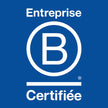FOCUS FIRST ON A BALANCED DIET and just like you, your body is fantastic!
He proved it during these 9 months during which your little one was being built.
And, rest assured, he will continue to help you give him the best.
Since the start of your pregnancy, you have been prepared for lactation and your milk will obviously be of good quality.
To help nature, simply make sure to eat a healthy and balanced diet:
On your menu: 5 portions of fruit and vegetables per day, 4 dairy products, cereals (bread, pasta, rice) or legumes at each meal, as well as proteins (meat, fish, egg).
Don't forget to hydrate yourself well, without unnecessary excess: water is essential for your body, but drinking more than 1.5l to 2l per day will not increase your milk production!
Eat everything but... During this breastfeeding period, you can eat everything, but in reasonable quantities, because doubling your intake will not have any more impact on the quality of your milk. However, as part of the food you consume influences the composition of breast milk (fats and vitamins), always strive to eat healthy and balanced, giving pride of place to vegetables, fruits and high quality organic proteins.
And limit or even better, eliminate caffeine and alcohol, which pass into your milk 1 to 3 hours after ingestion...
To have a coffee or a glass of champagne from time to time, always wait until the end of the feeding.
STOCK UP WITH CALCIUM The lactation process will draw heavily on your calcium reserves. You will therefore need to compensate for the loss of this mineral, both to preserve your bone health and to properly feed your baby, whose bone building requires a lot of calcium.
Where to find it? Yogurts, milk, dairy products, cheeses... there are numerous sources of calcium and you will be sure not to lack it by consuming 4 dairy products per day.
Be aware, however, that spreadable cheeses as well as goat's or sheep's cheeses are often quite low in calcium and that it is hard cheeses (Gruyere, Comté, etc.) which contain the most calcium.
Also note that certain mineral waters rich in calcium can supplement your daily intake if necessary. Listeria and salmonellosis cannot be transmitted to your baby through breast milk, unless medically advised, there is no longer any reason to deprive yourself of raw milk cheeses which are not recommended during pregnancy.
However, if your baby is allergic to cow's milk proteins (colic, bloating), you may be prohibited from dairy products during breastfeeding.
FOCUS ON IRON Iron is a trace element that the body cannot synthesize.
However, if you lack them, your red blood cell count decreases and you risk being tired and more susceptible to infections. In addition, your baby needs iron from your milk to build up his blood mass... This is why you must ensure that you are not deficient.
Therefore, choose foods that are rich in it and avoid excess coffee, tea or wine, which reduce digestive assimilation.
Where to find it? If you like them, know that the foods richest in iron are black pudding and offal but also beef and duck meat as well as seafood (oysters, clams).
Even though iron of animal origin is better assimilated during digestion, you can also find it in good quantities in dried vegetables (lentils, chickpeas), whole grains (wheat germ) and certain vegetables (watercress, broccoli and Popeye's famous spinach).
DON’T SKIP ESSENTIAL FATTY ACIDS Your body needs fat. And in particular unsaturated fatty acids (fats of plant origin and fish) which are essential fatty acids that your body cannot produce. Pay attention to this intake because it is just as essential for the proper development of your little one's brain as it is for maintaining your nervous balance.
It would even limit the risks of post-natal depression. Without completely depriving yourself of them, you will, however, be reasonable about saturated fatty acids (cold meats, fatty meats).
Where to find them? Essential fatty acids, particularly Omega-3, are found primarily in fatty fish (salmon, sardines, etc.) and certain oils (rapeseed, nuts).
With raw vegetables, 2 tablespoons of rapeseed oil per day are even enough to meet your Omega-3 needs.
AVOID CERTAIN SUBSTANCES By breastfeeding, you transmit good nutrients to your baby, but also sometimes less good ones...
For his or her own good, eliminate or limit: Peanuts: if there is a history of food allergies in the family, your baby may be at risk of developing one as well.
Avoid consuming foods containing peanuts during breastfeeding and seek advice from your doctor.
Soy: Even if no adverse effects have been observed so far, it is advisable to avoid soy-based products (soy milk, tofu, etc.) because they contain phytoestrogens passing through milk. maternal.
Also avoid consuming food supplements containing soy. Caffeine: present in coffee, caffeine also passes into your milk.
Your baby, eliminating it less quickly than you, do not consume more than 3 cups of coffee per day because beyond that, your little one could present transient hyperexcitability.
Alcohol: just like during your pregnancy, it goes without saying that you will avoid all alcoholic drinks while breastfeeding... Tobacco: if you have not been able to stop smoking, try to limit your smoking as much as possible. consumption and wait 2 hours before feeding so that the concentration of nicotine, tar and carbon monoxide in your milk is reduced.




